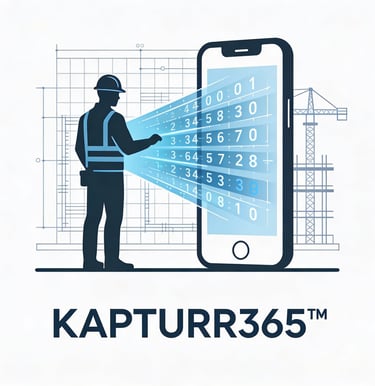Revolutionizing Architectural and Construction Services with AI Technology
Ruchir Suthar
4/26/20252 min read


Introduction to AI in Architecture and Construction
The integration of AI technology into architectural and construction services is transforming the industry as we know it. This technological advancement is not only enhancing design precision but is also streamlining various processes that were once time-consuming. With AI, architects and contractors are capable of producing better outcomes while saving valuable time and resources.
Benefits of AI in Architectural and Construction Services
One of the most significant benefits of implementing AI in architecture and construction is improved efficiency. AI algorithms can analyze large sets of data, which helps in making informed design decisions faster than traditional methods. For instance, AI can assist in generating architectural designs based on specific parameters and preferences, which drastically shortens the design phase. Furthermore, AI-driven project management tools can help track progress and manage resources effectively, reducing delays and budget overruns.
In addition to improved design and project management, AI can enhance sustainability in the construction industry. By optimizing designs through energy efficiency simulations, architects are better equipped to create buildings that consume less energy and have a lower environmental impact. This approach not only benefits the planet but also appeals to clients looking to invest in eco-friendly designs.
Current Trends in AI for Architecture and Construction
As we move forward, several trends are emerging in the integration of AI within architectural and construction services. One notable trend is the use of generative design tools, which leverage AI to explore countless design alternatives based on user-provided constraints. This technology allows architects to find innovative solutions that may not be immediately apparent, pushing the boundaries of creativity and functionality.
Additionally, AI is making strides in virtual reality (VR) and augmented reality (AR), offering immersive experiences for clients and stakeholders. These technologies enable users to visualize designs in a three-dimensional space, allowing for better feedback and collaboration during the planning phase. This trend not only enhances communication but also improves overall project outcomes, as clients can engage more actively in the design process.
Moreover, AI-driven predictive analytics tools are becoming crucial for risk management in construction. By analyzing historical data, these tools can forecast potential issues, allowing teams to mitigate risks before they become critical problems. This proactive approach is a game-changer, ensuring that projects remain on track and within budget.
Conclusion: Embracing AI in the Future of Architecture and Construction
In conclusion, the integration of AI technology into architectural and construction services is delivering immense benefits that cannot be overlooked. From streamlining processes to enhancing sustainability, AI is shaping a new era for industry professionals. As trends like generative design, VR, and predictive analytics reshape the landscape, it’s crucial for architects and construction firms to embrace these advancements to stay competitive and deliver exemplary results. The future of architecture and construction is undoubtedly linked to the continued evolution of AI technology, paving the way for innovation, efficiency, and excellence.
Quick Links
@ 2025 kapturr365. All rights reserved | Designed within India


